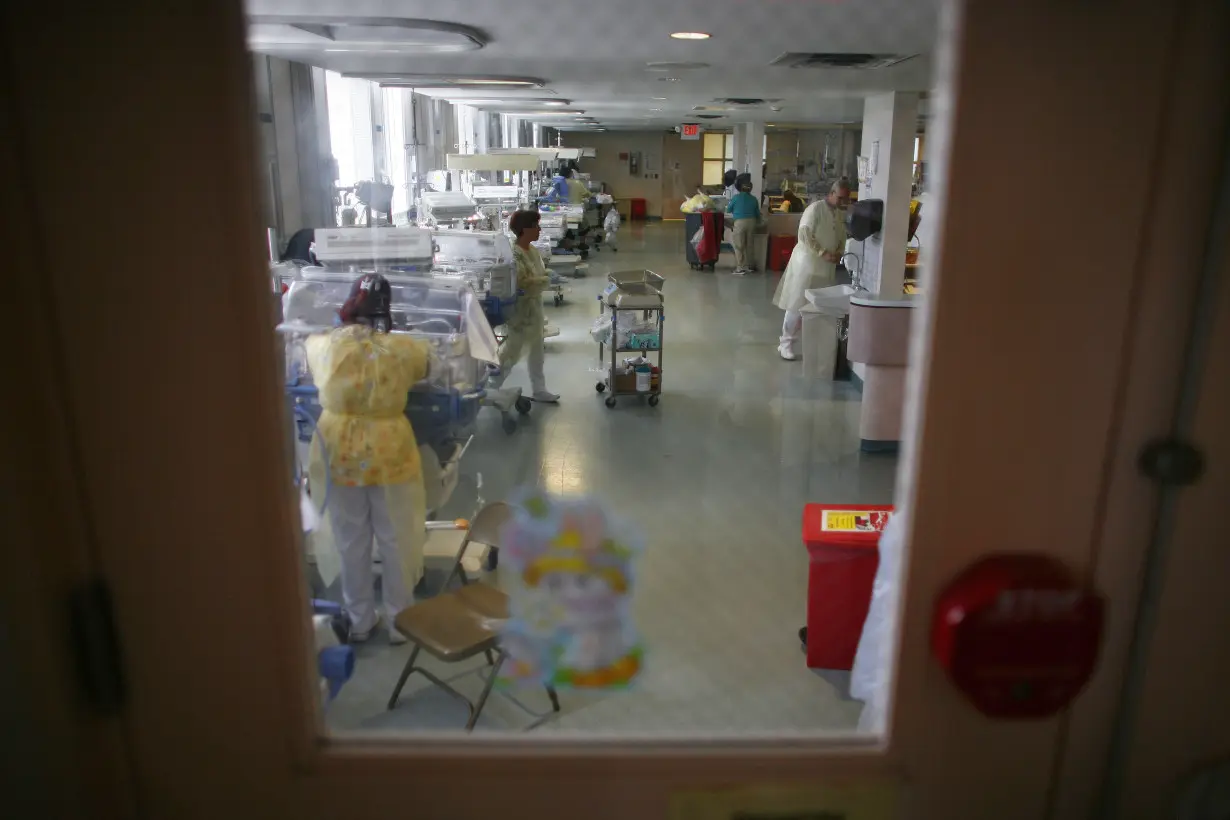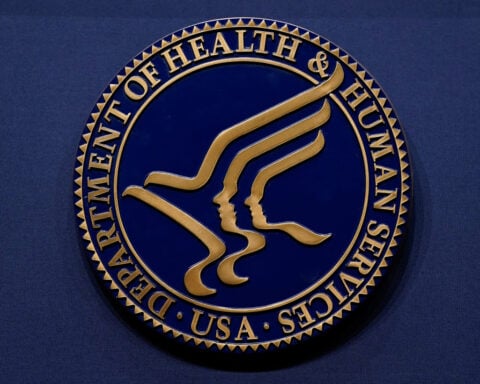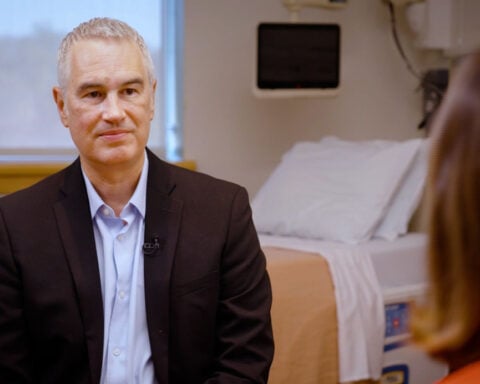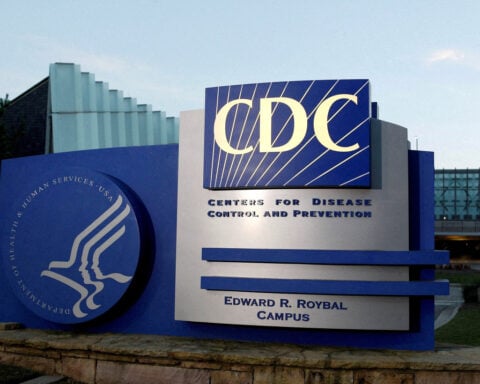SAN JUAN, Puerto Rico (AP) — Cesareans are surging in the U.S. territory of Puerto Rico, which has one of the world’s highest rates with more than 50% of babies now delivered via surgery compared with only 32% on the U.S. mainland, according to a federal report released Wednesday.
The rates of cesarean delivery on the island increased from 2018 to 2022 for each age group younger than 40 after remaining stable for nearly a decade, according to the U.S. Centers for Disease Control and Prevention.
The report did not provide an explanation, but medical experts in Puerto Rico say reasons behind the surge vary and include the island’s crumbling health care system.
“In general, hospitals have limited personnel and few economic resources,” said Dr. Carlos Díaz Vélez, president of Puerto Rico’s Association of Surgical Doctors.
As a result, ob-gyns prefer to schedule a cesarean to ensure they will have all the medical personnel required for a birth, he said.
“They prefer it be organized than improvised,” Díaz said. “It guarantees security.”
More than a dozen delivery rooms have closed across Puerto Rico in the past decade because of doctors moving to the U.S. mainland and a record drop in births, with only 17,772 births reported last year. That's the lowest since record keeping began in the late 1880s.
Díaz said a spate of lawsuits against Puerto Rican ob-gyns in the previous decade that he described as “frivolous” also have prompted doctors to schedule cesareans to reduce risks.
Women also prefer cesareans for aesthetic reasons or to avoid pain, since epidurals in Puerto Rico are routinely not covered by insurance companies, said Dr. Annette Pérez-Delboy, a maternal-fetal medicine specialist who specializes in high-risk pregnancies and previously worked in New York.
“In Puerto Rico, women are afraid of vaginal birth,” she said.
Pérez-Delboy coincided with Díaz that a lack of medical personnel also has contributed to a rise in cesareans. In addition, she noted that in vitro fertilizations have increased, leading to more twins being conceived, which leads to more cesareans to avoid risky births.
Pérez-Delboy also said that up-and-coming doctors are not well-versed in using forceps or vacuums, and as a result opt for cesareans to avoid legal action.
“For a doctor in Puerto Rico, it is better to do a cesarean section, since it pays more, you have it on time, it has less risk of litigation and the mother leaves happier,” she said, adding that doctors and patients are aware that vaginal births are better. “Everyone knows it, and everyone understands it, but you have to put yourself in the shoes of these doctors.”
In recent years, cesarean deliveries in Puerto Rico increased by more than 10% in three of six municipalities that reported at least 1,000 births, according to the CDC report.
The biggest increase occurred in mothers younger than 20, jumping from 37% to more than 42%, according to the report.
Puerto Rico’s Health Department has said that more than half of all cesareans performed on the island were not medically justified, and that nearly 80% of women who underwent the surgery never presented risk factors.
Heidi Anne Vera, a 47-year-old mother of two, is one of the few women who had a cesarean for medical reasons.
“It was an emergency,” she said. “It was not planned.”
She had worked with a doula and prepared to give birth at home, but her son was not in the correct position and her blood pressure began to spike.
“That’s when we decided to go to a doctor,” she said.
The World Health Organization recommends a cesarean rate of between 10% to 15%, noting that the average rate for the Americas is nearly 40%. Once the rate surpasses 10%, there is no evidence that mortality rates improve, according to the agency.
“The sustained, unprecedented rise in caesarean section rates is a major public health concern,” the organization said in a 2018 report.
Cesareans are considered a safe procedure, but the WHO noted that any surgery carries risks, and that cesareans could affect future pregnancies or put someone's life at risk if performed in a place with limited resources.
The organization said that factors contributing to the rise in cesareans are complex, adding that some of the most common reasons are fear of pain, the convenience of scheduling a birth and the perception that cesareans are less traumatic for a baby.
For the U.S. as a whole, the cesarean delivery rate is much lower but also has been rising. After generally declining from 2009 to 2019, it inched up for three straight years, accounting for 32.2% of births in 2022, up slightly from 32.1% the year before.
Data for 2023 has not yet been released.
___
AP Medical Writer Mike Stobbe in New York contributed to this report.

 Trump has begun another trade war. Here's a timeline of how we got here
Trump has begun another trade war. Here's a timeline of how we got here
 Canada's leader laments lost friendship with US in town that sheltered stranded Americans after 9/11
Canada's leader laments lost friendship with US in town that sheltered stranded Americans after 9/11
 Chinese EV giant BYD's fourth-quarter profit leaps 73%
Chinese EV giant BYD's fourth-quarter profit leaps 73%
 You're an American in another land? Prepare to talk about the why and how of Trump 2.0
You're an American in another land? Prepare to talk about the why and how of Trump 2.0
 Chalk talk: Star power, top teams and No. 5 seeds headline the women's March Madness Sweet 16
Chalk talk: Star power, top teams and No. 5 seeds headline the women's March Madness Sweet 16
 Purdue returns to Sweet 16 with 76-62 win over McNeese in March Madness
Purdue returns to Sweet 16 with 76-62 win over McNeese in March Madness








